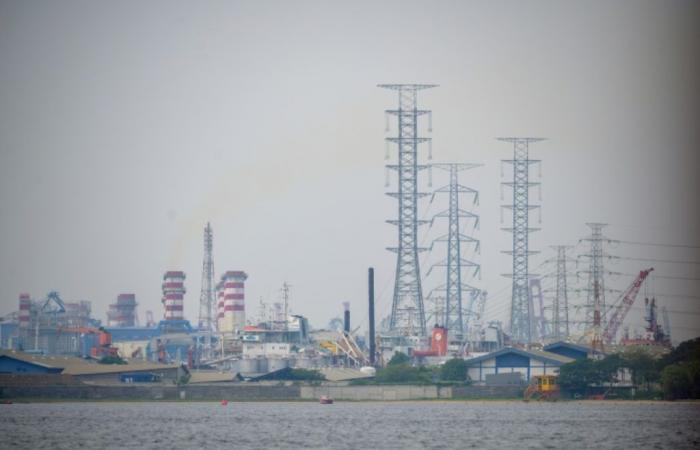A coal-fired power plant in Jakarta, July 4, 2024 (AFP / BAY ISMOYO)
Committed on paper to reducing their carbon footprint, large banks persist in wanting to finance activities that emit high levels of greenhouse gases, points out a research center advising investors on low-carbon investments in a report on Tuesday.
Of the 26 transnational banking establishments surveyed by the Transition Pathway Initiative (TPI) center based at the prestigious London School of Economics, 22 are ready to finance new coal-related activities, and 24 the exploitation of new oil and gas fields.
By allowing the circulation of significant capital towards activities that emit high levels of greenhouse gases, the heavyweights of the financial sector pose risks to all economic players, estimate the authors of the study.
“While some progress has been made since our first assessments in 2022, banks are not acting quickly enough to achieve global climate goals,” regrets Simon Dietz, research director at TPI.
“Without stronger action, the banking sector exposes itself – and by extension, the global economy – to greater regulatory, business and physical risks from climate change.”
The report, which examines a total of 38 banks, including ten US regional banks and French banks Crédit Agricole Group, Société Générale and BNP Paribas, reveals that most of them are not contributing enough to enable the world to achieve the goals temperature of the Paris agreement.
Only 19% of the trajectories presented by banks in their various sectors of activity have plans to reduce their carbon footprint by 2035 in line with what the sector is supposed to do to limit warming to 2°C compared to the pre-industrial era. This rate drops to 3% if we consider the stricter limit of 1.5°C.
The TPI analysis judges that European and Japanese banking establishments have set more sectoral decarbonization targets than their North American counterparts, while the Chinese banks studied have not yet set sectoral decarbonization targets.
In conclusion, the authors call for a more systematic integration of climate issues into bank operations.
“Promising carbon neutrality has become commonplace, but these commitments remain limited in their scope due to the exclusion of important sectors of activity,” they emphasize, estimating that only 22% of bank revenues are covered by climate commitments. .






